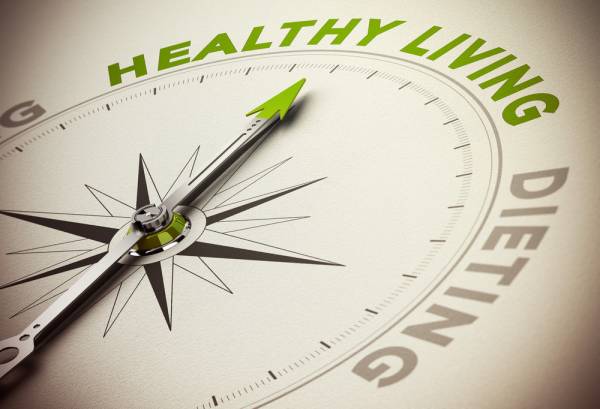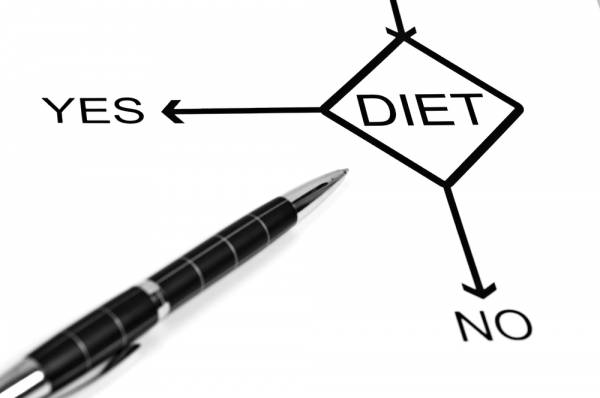I despise the word diet. In truth, I despise what the word stands for. There’s nothing inherently wrong with the word itself. The root of the word is derived from the Greek diaita, which means “manner of living.” A steady diet is simply something experienced repeatedly and is only good or bad for you depending on what that steady diet consists of.
But most diets are anything but steady. They are merely short-term excursions from our everyday lives. This distinction is what bothers me about the word. That is, the connotation behind the word diet – the quick fix.
The Temporary Nature of a “Diet”
When people say the word diet, we that they are referring to something temporary, and 99 times out of a hundred, they are also referring to weight loss.Webster’s lists one of its definitions for diet as “a regimen of eating or drinking sparingly so as to reduce one’s weight.” This is the definition almost all of us think of when it comes to the word – a temporary way of living to achieve the desired outcome of weight loss.
WebMD lists over 100 diets from the African Mango Diet to the Zone Diet. We in the fitness industry also prescribe diets in terms of how people should exercise to lose weight. At the start of every new year, countless thousands armed with resolutions exercise voraciously and temporarily in a manner fashioned to only work in the short-term. When I worked for a nationally televised show as a trainer, I was encouraged to have my obese client trying to burn over 3,000 calories a day through exercise. This was taken straight from The Biggest Loser playbook. You might call it the fad exercise diet.
And this happens every day all over the country. Recently, I had an overweight customer who exercised every single day and even sometimes twice daily in order to lose weight. With his extreme regimen, he lost over fifty pounds in a period of just over two months. Of course, in typical dieting form, I haven’t seen him since. I’d be willing to bet the farm he is well on his way to gaining it all back.
Diets Actually Make You Fatter
Here’s the real skinny on diets: none of them truly work. When it comes to the human physique, anything that is temporary in terms of how we move it or feed it will have a temporary result. Study after study corroborates that diets are ineffective in the long run, which is of course the only run that ultimately matters.
Still, ineffective or not, diets are popular because they do work in the short term, and that is good enough for many. It seems people would rather face temporary discomfort and enjoy immediate (but temporary) results, than face the more daunting task of looking at the hard truths of what has made them overweight or unhealthy.

Most people know diets don’t really work, because they are living proof. The yo-yo always swings back up. Deep down, people know a result from a diet is merely a vacation visit to a goal that never lasts. Diets certainly appear to work, as people see quick transformations and feel better as a result. But the sad truth is that people who participate in diets don’t keep their weight off.
A recent study followed people for two years after their diets and found that 83% of them gained back more weight than they initially lost. This up-and-down weight loss and gain is called weight cycling. Studies also show that not only is weight cycling ineffective, it is actually harmful to your health in the long run.
Your Food May Not Even Be the Problem
While many suffer through diet after diet knowing that they aren’t tackling the real issues, what many do not necessarily know is that this dieting may be hurting their health. Researchers published in Psychosomatic Medicine found that the process of dieting is more likely to produce cortisol, which ironically not only promotes weight gain but also has several serious negative health consequences. The study stated:
Chronic stress, in addition to promoting weight gain, has been linked with coronary heart disease, high blood pressure, diabetes, and cancer. Dieting might potentially add to this stress burden and its consequences would best not be ignored.
Furthermore, diets are especially prevalent among women and studies show that women who diet earlier in their lives are more likely to experience negative health outcomes later in life. According to a study from Florida State University that followed women for over ten years, those who dieted earlier in life were more likely to be obese and suffer from weight control disorders like self-induced vomiting or alcohol misuse.
Still, such data is not likely to dissuade the masses from participating. We diet because diets make us feel like we are doing something. People want action plans and a how-to manual of getting fit and thin. We want hard and fast instructions to follow instead of diving in to the murky waters of self-evaluation. But self-evaluation is the only true way lasting change is made. We need to embrace the self-actualization call-to-action versus the diet and exercise fads du jour that permeate our culture and the fitness industry.

How to Create Real Change
Be prepared to recognize what it is that needs permanent change and face it. Looking at your shadow is an uncomfortable process, but the only way real change is achieved. Once the culprits of weight gain, unhealthy living, and addiction are named, they can be defeated.
Once you have the big picture established, you can begin the process of tackling the real issues behind what diets and exercise fads pretend to address:
- Start by making a small permanent change. Take something toxic away and add something healthy in its place. The old adage of “an apple a day” is a good example. Add an apple in and subtract out something like added sugar out.
- Seek the right professional help. Obese people do not need a personal trainer. They need support in facing their real issues. This starts with a doctor, as well as support groups and the right mentors.
- Seek things that bring you lasting joy in both food and exercise (as opposed to a temporary and fleeting feeling of being happy.) Joy is a quality that comes about by nurturing your soul and body. When we express love, we express joy. When we express grace in exercise and sport, we find joy. When we seek good nutrition and wholeness in our diet, we find joy in our new relationship with food.
- Be willing to change your preferences and your surroundings. As a child of the 80s, I grew up on fast food. In fact, I couldn’t get enough of the stuff. After I grew up, I grew out of going and it stopped being part of my routine. And an interesting thing happens when you stop going to a fast food restaurant as a part of your routine. It stops having a gripping effect on you and even stops tasting good.
- Make a stronger emotional connection to what you want as opposed to how you feel in the moment. This emotional construct is at the crux of beating addiction and making permanent change. It is only when we change our thoughts that we truly change our lives (and our bodies).
References:
1. Jha, Alok, “Diets don’t work in long term, says survey” The Guardian, April 2007.
2. Tomiyama, A. J., et al, Low calorie dieting increases cortisol. Psychosomatic medicine (2010) 72(4), 357-364.
3. Mann, T., et al, Medicare’s search for effective obesity treatments. Am Psychol, (2007) 62(3), 220-233.
4. Society for the Study of Ingestive Behavior. “Dieting young may lead to poor health outcomes later: Trends in dieting strategies in young adult women from 1982 to 2012.” ScienceDaily. ScienceDaily, 29 July 2014.
5. Hagan, Pat “Dieting really CAN harm your health: Slimmers at higher risk of heart disease and cancer,” MailOnline, updated 17, April 2010.
Photos courtesy of Shutterstock.






